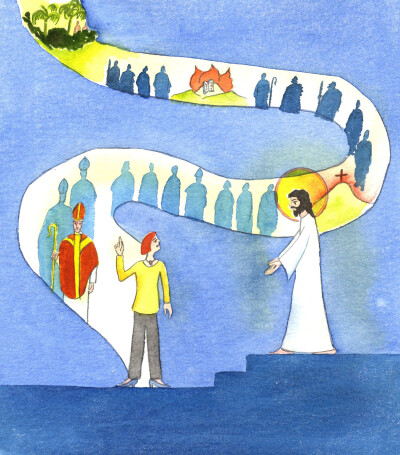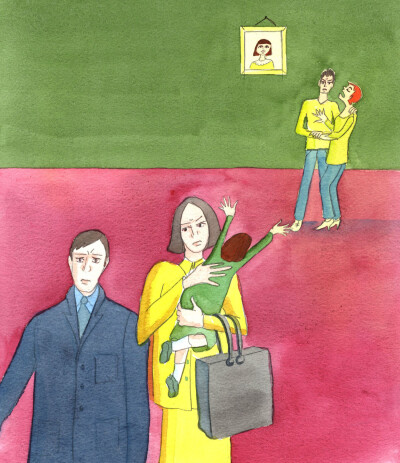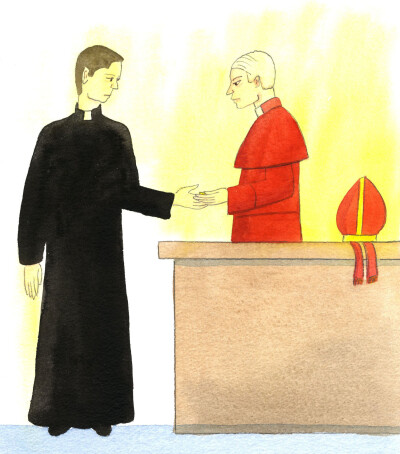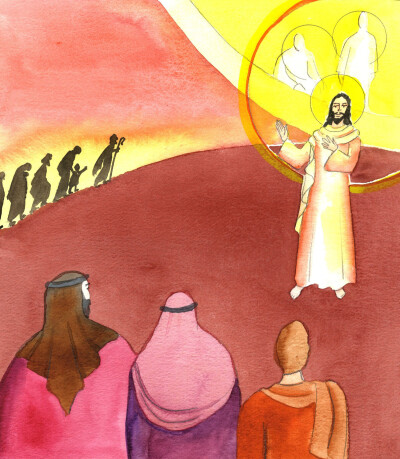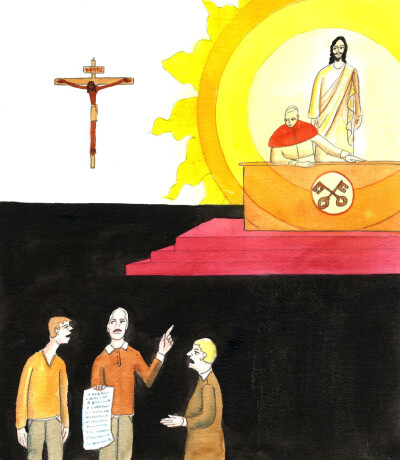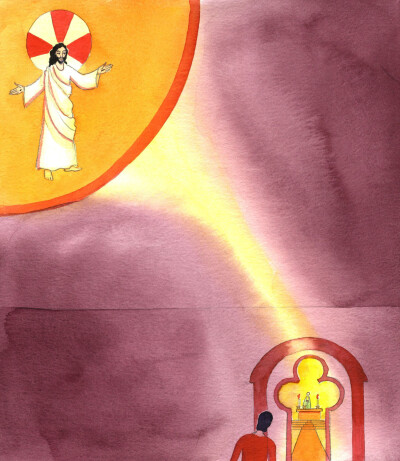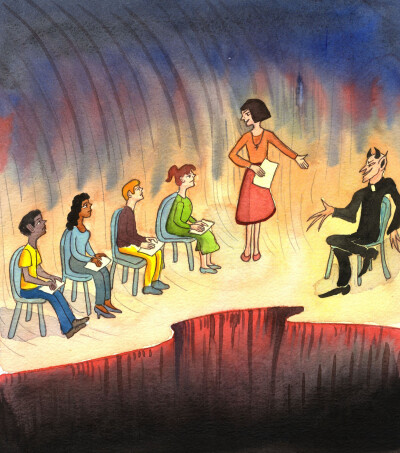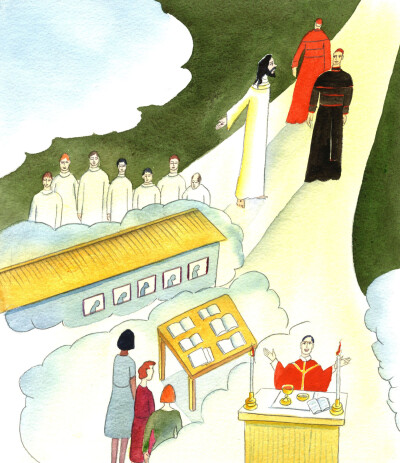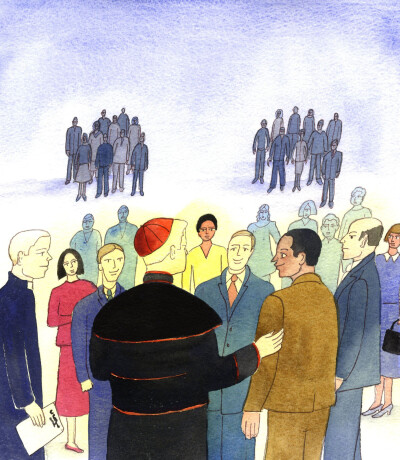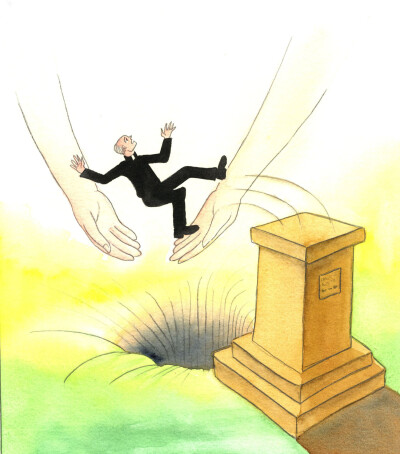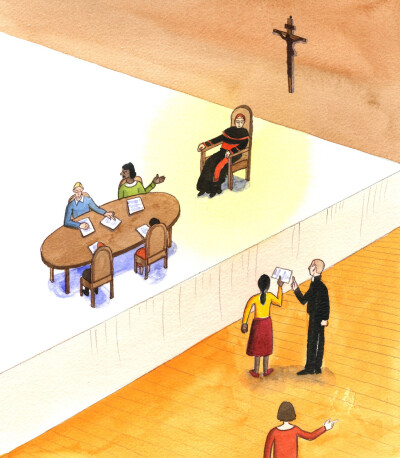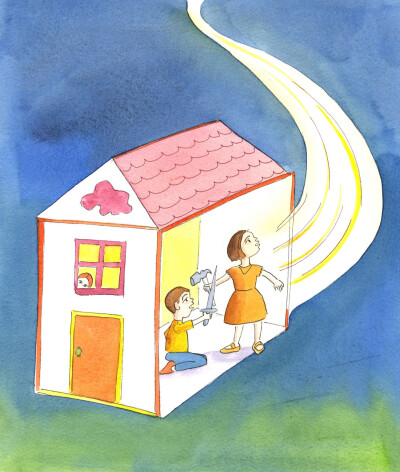Search Page
Showing 41 - 60 of 74
Very few Catholics accept the truth: that it is Christ Who teaches us through His Church; and that she teaches the truth about faith and morals. It is with pride that many speak, when they say, in effect: "On the subject of contraception, I know better, what is right and wrong, than all these Patriarchs, Prophets, teachers, Popes, Bishops and Saints."
Some bishops are in danger of elevating their obligation to live out their Collegiality above the duty of each Bishop to shepherd his own flock in his own diocese. They often dash to one event after another, to be together and to make joint statements, and risk losing opportunities to raise their individual and authoritive voices.
It is right that communities, groups, and family members try to help one another to overcome problems and lead good lives; but only in the most exceptional circumstances should people in authority interfere in family life to the extent of depriving parents of their children: occasionally necessary, but otherwise a great evil.
A Bishop is ordained to the fullness of the Priesthood so that he can teach the truths of the Faith with a sincere heart. When a Bishop ceases to believe in the moral teachings of the Church, or her articles of faith, and also criticizes the discipline of the Church which he should uphold, his best course is to resign. Teaching the Faith should be central to his life, not a half-hearted, occasional, sad duty.
Although God allowed sinful men, whom He justified, to guide and lead His People, He wants to teach all the peoples of the world through the truth spoken by His own Son, on earth, hence the Incarnation and Birth of Jesus Christ. He was inevitably persecuted and killed, yet knowing and accepting this in advance. But death, a punishment for sin, could not hold the sinless one, or His sinless Virgin Mother. They are in Heaven now, encouraging us to persevere is truth and holiness.
It is a tragedy, greater than most Catholics realise, that in Europe, including England, it is almost seen as normal Catholic practice to be opposing the constant teaching of the Church, founded by Christ to teach us, and complaining about the disciplines imposed by those in the Church, especially the Pope, who have authority from Christ to impose them.
A person who recognises the Catholic Church as the One Body founded by God Himself to lead us on the Way to Heaven is wise to come in. Christ, the Son of God, has given us authoritive teachings, and Divine power, so that faithful followers can persevere in the Faith, and lead holy lives, and spend Eternity at the heart of the Blessed Trinity, in Heaven.
There is a distorted or truncated version of the Catholic Faith which is widely taught today. It is the evil one who wants people to hear that they can disregard the sure teachings of the Church on sexual morality, neglect her devotions, down-play reverence towards the Holy Eucharist, ignore Christ's ever-Virgin Mother, and look upon the Pope as having no authority unless each of his acts delights all of the Bishops.
Christ is God-made-visible. He spoke the truth. His Church speaks the truth today. A priest is asked to hand on the truth as well as to show charity. The truth is plain for all who want to know it; and priests are wrong who distort or contradict truth for what they call 'pastoral' reasons.
We need to pray for all people in Government. No Government is wise, which forgets that it rules under God. No Government in a Christian country can flourish if it takes no account of Christian feast-days, and undermines the moral teachings of the Church. Those of us who can, should speak out against anti-life and anti-Christian legislation.
People who promote new devotions should be setting a good example to all the people who see them or hang onto their words. Are those speaking drawing attention to God, or to themselves? Do they believe in all the teachings of the Church? Have they profited from their message? Are they obedient to those in authority over them in the Church?
When a new Bishop is appointed, he should know what his Master, Christ, is inviting Him to examine, as he begins his care of a new Diocese. The Bishop will ask about his priests, and their well-being. He will look at the Seminary, and its training. He will ensure that catechesis is well-organised, orthodox and wholehearted; and he will see whether the Sacred Liturgy is celebrated in a way which gives glory to God, and every possible help for the education and salvation of souls.
There are two groups of people who look on, as if from afar, as a Bishop speaks with members of his flock. They are those politicians and journalists who regard the Catholic Church as an archaic, irrelevant, and peculiar religion; and they have no idea of the extraordinary role of the Bishop, in God's sight, nor of his awesome responsibilities and privileges.
Since they are often ignorant of Christian history, some groups of puzzled reporters or politicians who regard the Church as irrelevant and a Bishop as a nuisance have no idea of the truth about his office. They do not realise that God the Son, in coming to earth, founded a Church with Divine authority, sent out chosen leaders to preach the truth in every place, about sin and salvation; and that the current Bishop is the particular ambassador or representative of almighty God in this place on earth!
We must trust in Christ's gift to us of the Pope, successor to St. Peter, if there should be a need of clarifications of passages of the documents of the Second Vatican Council. Even untrained lay-persons can see that some phrases and passages are ambiguous; and so we can count on the Pope to explain these in a way faithful to the teaching of the Church through the ages.
It can be hard for some priests as they grow old and frail, and step down from positions of influence, no longer able to preach and command a hearing. Some feel as though, in retirement, they are falling, helpless, towards oblivion; but they should believe that, underneath them, to hold them, are the 'everlasting arms' of God.
When we talk about the Magisterium we mean that it is Christ Who has given us the Pope and the other Catholic Bishops, to teach us the truth handed on in Sacred Scripture and in the Sacred Tradition. They teach us right from wrong. To spend a life-time arguing about their sure teaching is to waste valuable time, which we could have spent striving for holiness in the service of God and neighbour.
Many Catholics practice what must be called false ecumenism. A Catholic priest or Bishop acts against the truth if he stands with a Protestant leader and gives what is called a joint blessing. This gives the impression that they each have the same power and authority. And when a Protestant minister is invited to offer a sermon during a Mass, this is against the wish of Christ and His Church. It is forbidden.
It is not enough for a bishop to rely on committees, in managing the education, catechesis and liturgical celebrations in his diocese, if this results in unorthodox statements or programmes being put forward, or irreverent or foolish liturgical practices. He has been given authority by Christ; and should step in, to ensure that everything is in accord with the 'Mind of Christ'
Just as in a childrens' play-house there can arise nasty squabbles, and an adult has to swoop down to help the children to see reason, so in the Church, our joy can be spoiled by squabbles about doctrine or Liturgy, especially when the truth offered by those in authority is ignored; and so God swoops down from time to time, to help, by means of an inspiring vision, or a message, or a new call to penance, or a new gift of encouragement for the Church.
Showing 41 - 60 of 74

